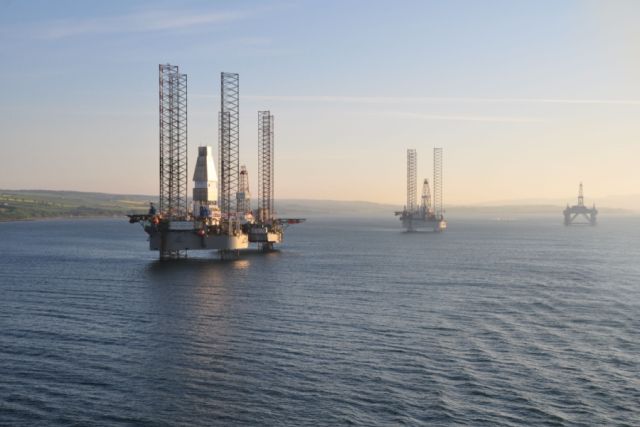
Oil rigs in the North sea off the coast of England and Scotland. (Source: Shutterstock.com)
The North Sea Transition Authority is investigating operators for blowing plug and abandonment (P&A) deadlines among operators on the U.K. Continental Shelf, which have caused forecast expenses to rise by billions of dollars.
Operators expect to spend about £24 billion (US$31.1 billion) on decommissioning between 2023 and 2032, a £3 billion (US$3.89 billion) increase compared to the same period last year, according to a July 16 NSTA report.
Repeated delays to P&A work, competition for rigs from overseas and cost pressures are pushing up the estimated bill for decommissioning on the UKCS, the authority said.
Hundreds of wells will need to be decommissioned every year as more oil and gas fields shut down. However, operators only achieved 70% of planned well decommissioning activities last year, NSTA reported.
“Some operators are deferring in hope that prices will go down in the coming years,” NSTA said. “However, failing to award [P&A] contracts reduces the supply chain’s revenues and ability to invest in capacity and resources.”
Pauline Innes, the NSTA’s supply chain and decommissioning director, wrote to licensees in November 2023 urging them to make headway on P&A and warned that failure to comply would bring consequences. That includes NSTA exploring the use of sanctions to bring operators online, the authority said on July 26.
The NSTA’s Directorate of Regulation has also “commenced investigations relating to alleged failures to complete timely plugging and abandonment in line with approved plans,” the authority said.
The authority is also spearheading a project to identify UKCS wells that will be ready for decommissioning between 2026 to 2030. The goal is to assess the supply chain capacity required and undertake work on time and cost effectively.
“With spending forecast to peak at £2.5bn per year in the current decade, decommissioning can ensure that the UK’s world-leading supply chain is equipped to help operators clean up their oil and gas infrastructure over the next 50 years and support the carbon storage sector, which will rely on many of the same resources,” Innes said.
Previous efforts by the industry to share information and produce robust planning helped lower estimated decommissioning costs by £15 billion between 2017 and 2022, NSTA said.
However, further improvements have been difficult to achieve as much of the “low-hanging fruit has been picked,” the authority said.
Recommended Reading
Enchanted Rock’s Microgrids Pull Double Duty with Both Backup, Grid Support
2025-02-21 - Enchanted Rock’s natural gas-fired generators can start up with just a few seconds of notice to easily provide support for a stressed ERCOT grid.
ADNOC Contracts Flowserve to Supply Tech for CCS, EOR Project
2025-01-14 - Abu Dhabi National Oil Co. has contracted Flowserve Corp. for the supply of dry gas seal systems for EOR and a carbon capture project at its Habshan facility in the Middle East.
Equinor’s Norwegian Troll Gas Field Breaks Production Record
2025-01-06 - Equinor says its 2024 North Sea production hit a new high thanks to equipment upgrades and little downtime.
Tethys Oil Suspends Kunooz-1 Well in Oman
2024-12-13 - The decision to suspend its Kunooz-1 exploration well comes after flow testing failed to confirm the presence of commercially-viable hydrocarbons, Tethys said.
ProPetro Agrees to Provide Electric Fracking Services to Permian Operator
2024-12-19 - ProPetro Holding Corp. now has four electric fleets on contract.
Comments
Add new comment
This conversation is moderated according to Hart Energy community rules. Please read the rules before joining the discussion. If you’re experiencing any technical problems, please contact our customer care team.





